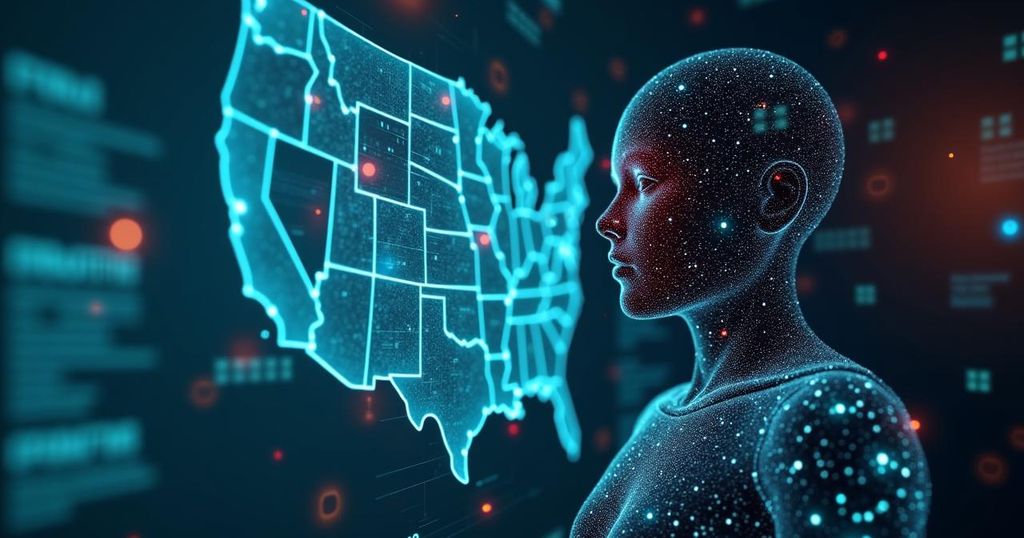Ben Nimmo, a threat investigator at OpenAI, is guiding U.S. officials in combating foreign disinformation attempts utilizing AI as the election approaches. While many adversaries are still inexperienced in leveraging AI, scrutiny of their tactics remains essential. Nimmo’s recent reports reveal disruptions of multiple disinformation campaigns, revealing both the urgency and the challenges presented by AI technologies in electoral integrity.
In preparation for the forthcoming presidential race, national security and intelligence officials in the United States engaged Ben Nimmo, a new threat hunter at OpenAI, to advise them on the emerging foreign threats posed by artificial intelligence (AI). Nimmo is notably recognized for his role in identifying the Kremlin’s interference in U.S. elections in 2016. Currently, he is scrutinizing the efforts of various adversarial nations, primarily focusing on the potential misuse of OpenAI’s technologies, including ChatGPT, by foreign entities in their disinformation campaigns leading up to the November elections. Despite the ongoing threat, Nimmo observes that most foreign actors such as Russia and Iran are still largely experimenting with AI, implementing ineffectual and amateurish tactics that exhibit limited success in influencing American voters. However, U.S. officials remain vigilant, acknowledging that adversaries are likely to refine their strategies as the elections draw closer. Nimmo’s recent reports reveal that OpenAI has disrupted multiple disinformation operations, including an Iranian initiative targeting U.S. political discourse and a Russian campaign utilizing generative AI for propagandistic purposes. Although Nimmo asserts that these efforts have not yet gained significant traction, he emphasizes the necessity of maintaining high alert status as the election approaches. Nevertheless, some of his colleagues express concerns that OpenAI may be trivializing the potential impact of its technologies in fostering electoral disinformation. Nimmo employs a scale to assess the influence of these campaigns, a framework he developed prior to the 2020 election. As the pressure mounts for OpenAI, valued at $157 billion, to mitigate the risks associated with its AI tools, Nimmo’s insights are critical in navigating the treacherous landscape of foreign disinformation operations. Nimmo’s journey into the realm of threat hunting began in earnest following an assault during a reporting assignment in Estonia, which ignited his interest in Russian propaganda tactics. With a background steeped in literature and languages, he has effectively contributed to investigations into foreign influence operations and manipulated narratives online. Having previously served in various roles, including leading global threat investigations at Meta, his shift to OpenAI marks a strategic evolution in the fight against disinformation. Nimmo’s experience, empathy, and scholarly approach resonate through his ongoing commitment to deterring malign actors in a digital age.
The article illuminates the significant threats posed by artificial intelligence to democratic processes, particularly in the context of foreign interference in U.S. elections. Ben Nimmo, an adept threat investigator at OpenAI, is central to ongoing efforts to understand and counteract the ways in which adversarial nations exploit AI for disinformation. Drawing upon his extensive background in tracking Russian propaganda, Nimmo embodies the complexities of leveraging advanced technologies to defend against novel threats in the digital information ecosystem. As the U.S. braces for critical elections, the role of technology companies such as OpenAI in mitigating risks associated with AI misuse has become increasingly paramount, suggesting a need for rigorous oversight and proactive intervention against foreign disinformation operatives.
In conclusion, Ben Nimmo stands at the forefront of the battle against foreign adversaries exploiting AI technologies to influence U.S. electoral outcomes. His efforts exemplify a critical intersection of technology, national security, and public policy as OpenAI and government officials work collaboratively to counteract emergent threats. While current campaigns appear rudimentary, the potential for foreign actors to refine their strategies underscores the urgency of ongoing vigilance. Consequently, Nimmo’s insights and investigative capabilities are essential in safeguarding the integrity of democratic processes amid evolving technological landscapes.
Original Source: www.washingtonpost.com






